Search Results
Showing results 1 to 20 of 138
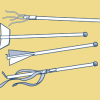
Blast Off!
Source Institutions
Students design and create their own air-powered rockets, in this hands-on activity.

Cleaning with Dirt
Source Institutions
Learners build a filter from old soda bottles and dirt. They create polluted water, and pour it through their filter to clean it.

Dripping Wet or Dry as a Bone?
Learners investigate the concept of humidity by using a dry and wet sponge as a model. They determine a model for 100% humidity, a sponge saturated with water.
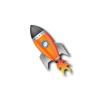
Rocket Launchers
Source Institutions
In this activity, learners work with an adult to build a rocket and launcher out of a plastic 2-liter bottle, flexible plastic hose, plastic tubing, toilet paper tube, and duct tape.
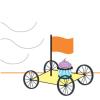
Cupcake Delivery
Source Institutions
In this design challenge, learners will create wind-powered contraptions to transport a load, such as a cupcake or another small object, and test to see if they work.
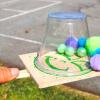
Marble Game
Source Institutions
In this activity, learners construct a simple game to test their hand-eye coordination and steadiness of hand.
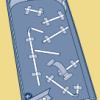
Pinball Wizard
Source Institutions
In this hands-on engineering project, kids use two simple machines, levers and inclined planes, to construct their own pinball machines.
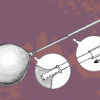
Launch It
Add to list DetailsIn this design challenge activity, learners use a balloon and other simple materials to design an air-powered rocket that can hit a distant target.
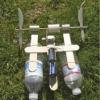
Electric Paddle Boat
Source Institutions
In this activity, learners build an electric two-paddle boat using paint paddles, plastic knives, and empty water bottles.

Dunking the Planets
Source Institutions
In this demonstration, learners compare the relative sizes and masses of scale models of the planets as represented by fruits and other foods.
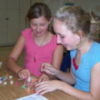
Gumdrop Dome
Source Institutions
In this activity (located on pages 23-24 of the PDF), learners are introduced to structural engineering and encouraged to practice goal-oriented building.
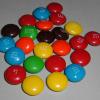
Radioactive Decay of Candium
Source Institutions
In this simulation, learners use M&M™ candy to explore radioactive isotope decay.
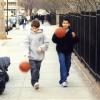
Mega Bounce
Source Institutions
In this outdoor activity (on page 2 of the PDF under GPS: Baseball Activity), learners will investigate the transfer of energy using sports equipment.

As Straight as a Pole
Source Institutions
In this engineering activity (page 3 of PDF), young learners investigate how a pole can be made stable by “planting” its base in the ground or adding supports to the base.
Magnets are Marvelous
Source Institutions
In this activity, young learners investigate magnets. Learners discover that some magnets are stronger than others and that magnets have north and south poles.
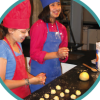
Cookie Surface Area
Source Institutions
This is an activity (on page 2 of the PDF under Surface Area Activity) about surface area to volume ratio.

Breaking Beams
Learners investigate stress and strain by designing, building, and testing beams made from polymer clay.

Fun with Bernoulli
Learners conduct four simple experiments to demonstrate the effects of air pressure.
Up, Up and Away with Bottles
Source Institutions
In this activity, learners make water rockets to explore Newton's Third Law of Motion. Learners make the rockets out of plastic bottles and use a bicycle pump to pump them with air.
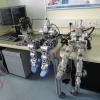
Exploring How Robots Move
Source Institutions
In this activity, learners explore how pneumatics and hydraulics could be used to produce movement in a robotic arm.
